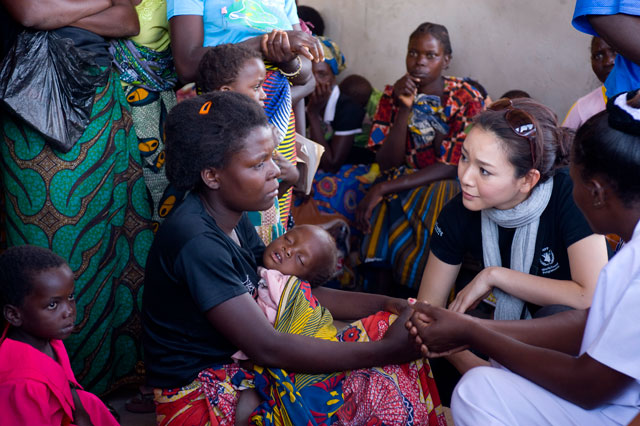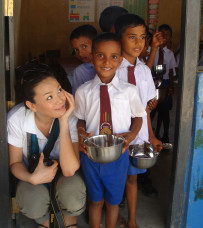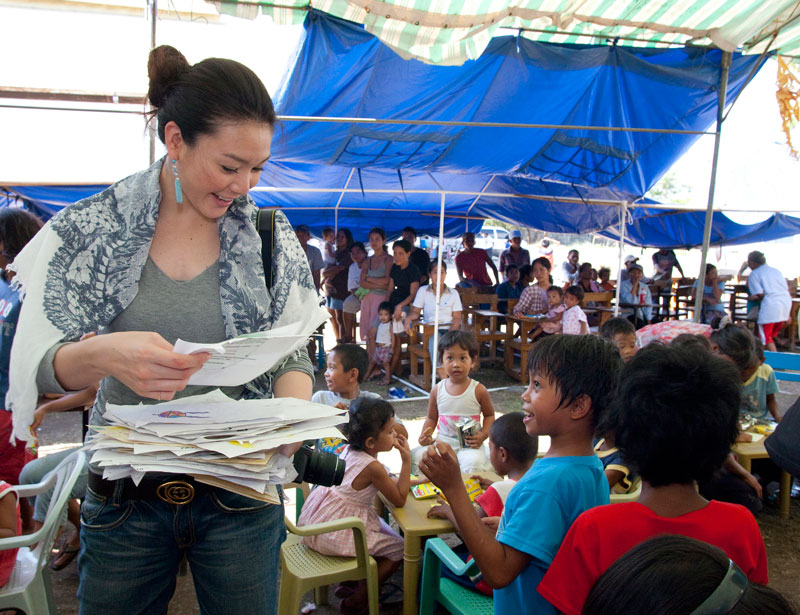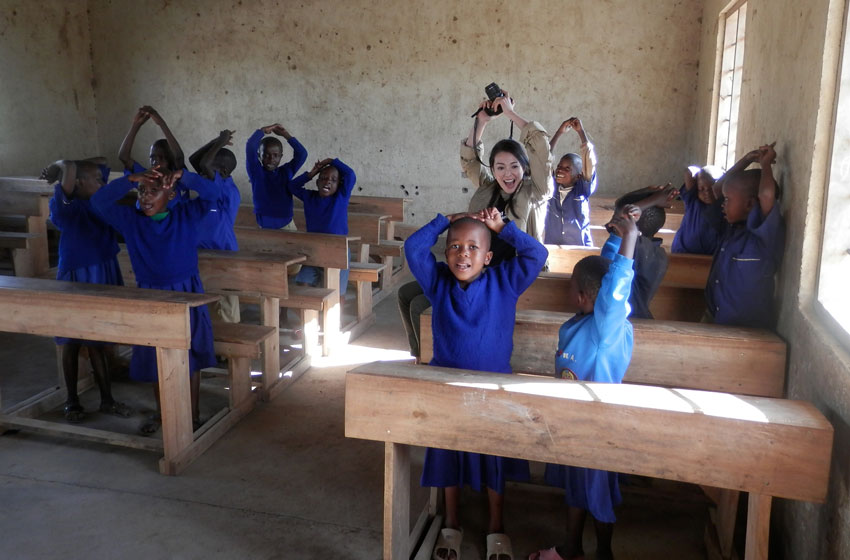A beautiful model or renowned rock star standing next to some impoverished children from Africa: it is the kind of picture we have gotten used to seeing over the years. For some it naturally arouses suspicion. Are they in it for the right reasons or do they have an ulterior motive? How much do these people really know about the cause they are supporting?
By Matthew Hernon
Pertinent questions certainly, but what about the positives that these big-name stars can bring to philanthropic organizations? 2006 Miss Universe First Runner-up Kurara Chibana, who was recently appointed the first Japanese National Ambassador against Hunger for the United Nations World Food Programme (WFP), believes people in the public eye have a pivotal role to play in raising awareness of global issues as they can reach out to a larger audience.
“I was a little conflicted at first as to whether I should take part in humanitarian projects,” she tells Weekender. “I was aware of the skepticism that surrounds celebrity charity work and I knew there was a chance I would be criticized. I felt there would be some people here in Japan who might question my reasons and possibly suggest I was doing it for the fame or to sell something. It made me feel uneasy, yet at the same I had longed to engage in NGO and NPO activities. That was the reason I decided to take part in Miss Universe in the first place, so I was determined not to let negative thoughts kill those dreams.
“I couldn’t devote my whole time to visiting developing countries as I had work commitments in Japan, yet at the same time I wanted to do something. The Miss Universe pageant gave me a huge opportunity, it put me in the spotlight; people suddenly knew who I was and were interested in what I had to say. I realized I could use that fact to try and inform the public about problems and critical situations in various places around the world. Being famous gives you a huge platform to pass on your message to a large number of people; I think we should use that platform to help worthwhile causes as much as we can.”
Well known stars doing their bit for charitable groups is hardly a new phenomenon. Back in the 1920’s actor Jackie Coogan (Uncle Fester in the Addams Family) spearheaded a “Children’s Crusade” to raise funds for orphans in countries like Armenia and Greece. As the twentieth century progressed more and more Hollywood actors such as Paul Newman and Audrey Hepburn added their weight to various humanitarian causes.
Celebrity endorsements then went into overdrive during the eighties with Bob Geldof and Midge Ure from Ultravox leading the way. Their song “Do They Know It’s Christmas,” which raised money for the famine in Ethiopia, featured some of the world’s most distinguished musicians and up until Elton John’s 1997 hit “Candle in the Wind,” was the highest selling single in UK chart history. They followed that up with the dual-venue concert Live Aid a few months later, which reached an estimated global audience of 1.9 billion.
Cynics will no doubt point to the fact that all the acts, with the exception of Adam Ant, increased their record sales as a result of the event and therefore only took part in it to cash in. That might be true in some cases, but at the end of the day without such a star-studded line-up the situation in Ethiopia would never have received anything like the attention it did.
The fact is: big names attract big numbers. In 2012 a Beyoncé-led UN campaign to encourage people to “do something good, somewhere, for someone else” on Humanitarian Day inspired more than one billion messages on varying social networking sites. If the former Destiny’s Child singer hadn’t been involved though, those kinds of numbers would have been unthinkable.
Selecting the right celebrity can make a massive difference to a charitable institution and in Kurara Chibana, the WFP believe they have found the ideal candidate in Japan. Whilst she may not have the international appeal of females like Angelina Jolie or Beyoncé, she is one of the most popular models in this country. Engaging, articulate and clearly very bright, she worked as the WFP’s celebrity partner before being named as an official ambassador late last year. Using her blog, magazine columns and talk shows, she has done a fantastic job of promoting the organization’s fine work. In order to continue doing it effectively she feels it is vital to get closer to those she is trying to help.
“I travel to at least one destination per year, visiting people affected by hunger,” she says. “I’ve been to Zambia, the Philippines, Sri Lanka, the Tohoku region, Tanzania and Ethiopia. I think it is necessary to see the situation up-close and be able to talk to parents and children directly. I’m particularly passionate about the school feeding program. Seeing the joy on the kids faces as they eat their lunch, I just love it.
“Of course there are times when you feel helpless. Speaking to children in Zambia who have lost both their parents to AIDS, it is heartbreaking. All I can really do is try to spread their message to as many people as possible in the hope that something can be done about this kind of thing in the future.”
When Chibana speaks about the WFP, it is evident how much the program means to her. When she was younger her mother told her that if she ever became rich or famous she should try to use her fame to give back to those who were less fortunate and that is exactly what she is doing. She is not in it to boost her ego or career; she just wants to help as much as possible and even started her own project for children in Fukushima, in which she annually takes around seven families to a small island in Okinawa for a summer camp. A fantastic role-model and a real credit to her profession, Kurara Chibana proves that there are celebrities out there who genuinely care for the cause they are supporting.
Main Image: Photo courtesy of WFP/Rein Skullerud












